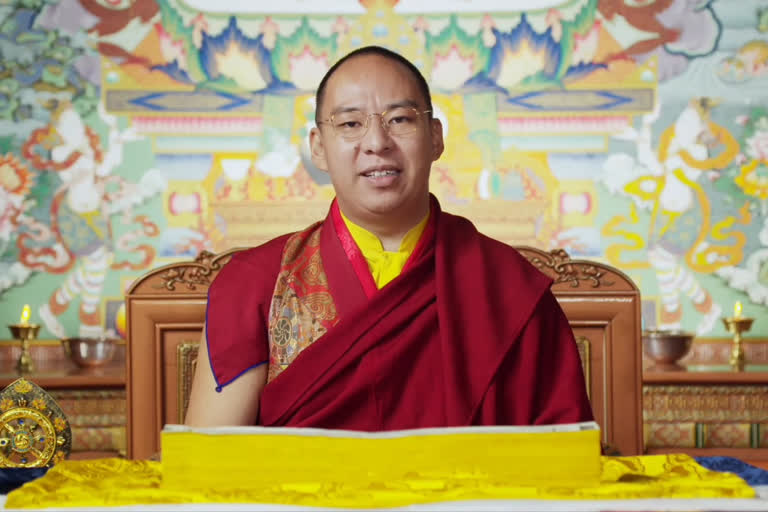New Delhi:Two months before China’s new border law comes into effect, Beijing has made a pre-emptive move on the blurry India-China peripheries by getting Tibetan Buddhist leader the 11th Panchen Lama Gyincain Norbu to declare his support for strengthening the national borders—primarily targeting the India-China border that is inhabited by people of ethnic Tibetan extract.
The Panchen Lama, 31, expressed his support by contributing 1 million yuan (about 156,000 US dollars) on Friday.
Chinese media quoted him as saying at a ceremony in Lhasa: “Through the donation, I hope that more young representatives of Tibetan Buddhism will participate in social activities and contribute to national unity, ethnic unity, as well as stable and orderly social development,” Gyincain Norbu was quoted as saying at a ceremony in Tibet’s capital Lhasa.
The media report also said that the funds will be used for strengthening national borders as well as to consolidate other development activities.
Article 11 of the newly-framed border law announced on October 23, 2021, states that “The State shall strengthen publicity and education on land borders, build a strong sense of community of the Chinese nation, carry forward the spirit of the Chinese nation in defending the unity and territorial integrity of the motherland, and enhance citizens' national concept and homeland security awareness, build a common spiritual home for the Chinese nation.”
The donated funds were part of gifts that had poured in for the Panchen Lama after he was conferred the ‘Kachen degree’, considered equivalent to a doctorate degree in modern education, on Tuesday (October 26, 2021), at the Tashilhunpo Monastery in Xigaze, in China’s Tibet Autonomous Region.
The China-appointed Panchen Lama has been consistent in his support for Beijing. In March 2021, he said in an interview that he believes Tibetan Buddhism will adapt to the conditions of a socialist society with Chinese characteristics and move towards ‘sinicisation’.
The religious leader had been studying Buddhist sutras for more than 25 years. He is already part of the Standing Committee of the National Committee of the Chinese People’s Political Consultative Conference, China’s top political advisory body.
